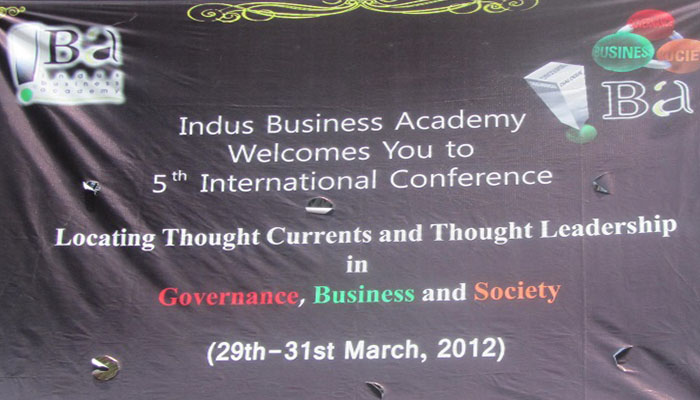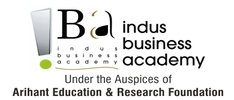
International Conference 2012
5th IBA International Conference, Locating Thought Currents and Thought Leadership in Business Governance and Society
To many, the recent events across the world herald the changing dynamics between governing and the governed. From a passive model of recipient of paternalistic driven governance systems, the digital era and the opportunities unleashed by it have transformed the citizens into active participants in the public policy discourse. This is strongly reflected in the Anna Hazare movement as also in the Arab Spring. Conversely, another set of social construct is sought to be built through an act of violent manifestations embodied in the challenges of naxalism and terrorism. The subterranean pressures seek to engulf the business firms too apart from polity and society. Further in the era of the shrinking State, corporate hegemony marches forward and has implications for emerging economies. The TRIPS agreement, ever increasing sweat shops among others, stand as examples to this. The counter reactions from the society have resulted in violent manifestations like in Nandigram and Kalinga Nagar etc. At the same time, the rise of click and mortar models seem to replace traditional business models. Capillary action models, Peer production like Wikipedia, open business models all unheard few years before now present new opportunities.
At any point of view, the societal discourses get rooted in three forms. The first is the elitist form reflecting the discourse of the fittest. The industrial information mass media centric economy reflects this phenomenon. Corporate backlash through TRIPS, strengthening copyright regimes, patent trolls, knowledge games all stand testimony to this. The second discourse is communism where one sees a challenge in part and in some measure to the elitist model. Challenges to public sphere through generative internet based business models and the Arab Spring present an evidence for this discourse. The third is the liberation from oppression either through violent manifestations or through non-violent liberation movements.
A further fundamental change on the horizon is the rise of India’s soft power. India’s unique contribution to Global society in general and US in particular, from Swami Vivekananda (Spiritual tradition) to Mahatma Gandhi (Social action) the Emergence of Knowledge Professionals in the current era, is witnessing a revived and heightened interest. As a model of soft power trickling up to the upper echelons of the society, Indian Management thoughts are now attracting serious attention even among the Western thinkers.
While we remain uncertain over the turn of the events in future, it would be interesting to explore the future directions of the interfaces of the global society; economy and polity. The conference attempted to provide a common platform for scholars, students, corporate practitioners and activists in seeking the answers for locating thought currents and identifying thought leadership models in the new world.
[Best_Wordpress_Gallery gallery_type=”slideshow” theme_id=”1″ gallery_id=”31″ sort_by=”order” order_by=”asc” slideshow_effect=”fade” slideshow_interval=”5″ slideshow_width=”700″ slideshow_height=”400″ enable_slideshow_autoplay=”1″ enable_slideshow_shuffle=”0″ enable_slideshow_ctrl=”1″ enable_slideshow_filmstrip=”1″ slideshow_filmstrip_height=”90″ slideshow_enable_title=”0″ slideshow_title_position=”top-right” slideshow_enable_description=”0″ slideshow_description_position=”bottom-right” enable_slideshow_music=”0″ slideshow_music_url=”” watermark_type=”none” watermark_link=”http://web-dorado.com”]
